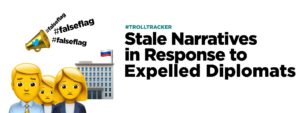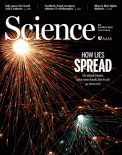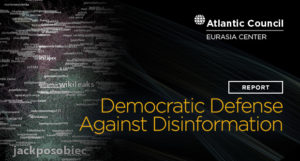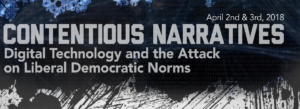Russian attempts to fuel dissent and spread disinformation have been exposed by a cache of leaked documents that show what the Kremlin is prepared to pay for hacking, propaganda and rent-a-mob rallies, the (London) Times reports:
Hacked emails sent by Moscow-linked figures outline a dirty-tricks campaign in Ukraine, which was invaded on the orders of President Putin in 2014. Experts said that they exposed the dangers faced by Britain and its allies because Russia used the same weapons of disinformation, bribery and distortion to attack the West.

Wikipedia
Bob Seely (above), a Tory MP and expert on Russian warfare, said his analysis of the leaks revealed a “shopping list of subversion.” The emails come from the third tranche of the so-called “Surkov leaks,” named after Vladislav Surkov (right), Putin’s close personal adviser, who is alleged to have sent emails found in two previous tranches.
There are more than 50 tools of influence in the Russian playbook, Seely and Euromaidan Press editor Alya Shandra argue in a new report. It is helpful to group them into six methods: modern active measures; governance and culture; economics and energy; military power; diplomacy; and information warfare including cyber. At the heart of the framework is a seventh element: command and control, they write for the Times:
 Manipulating public debate is crucial because the new battleground is perception. Legitimate issues are used as “trojan horses”. In the leaks the Kremlin manipulates environmental campaigns, poverty, culture, historical memory and even federalism to achieve its goals.
Manipulating public debate is crucial because the new battleground is perception. Legitimate issues are used as “trojan horses”. In the leaks the Kremlin manipulates environmental campaigns, poverty, culture, historical memory and even federalism to achieve its goals.
 “There is overwhelming evidence that the tools and techniques of Russian covert conflict are being used in and against the UK, the US and the EU,” Seely added. “In the wake of the Skripal poisoning it’s more important than ever that we understand these methods.”
“There is overwhelming evidence that the tools and techniques of Russian covert conflict are being used in and against the UK, the US and the EU,” Seely added. “In the wake of the Skripal poisoning it’s more important than ever that we understand these methods.”
A senior EU official has called for action against internet companies that harvest personal data, as Brussels prepares to move against those spreading “fake news” following the Cambridge Analytica revelations, the Guardian reports:
 Sir Julian King, the European commissioner for security, wants “a clear game plan” on how social media companies are allowed to operate during political campaigns to be ready for the 2019 European elections. The European commission’s digital strategy, to be outlined this month, has been given new impetus by the Cambridge Analytica scandal, in which whistleblowers revealed that the data of 50 million Facebook users ended up in the hands of political consultancies for use in Donald Trump’s US election campaign and the UK’s EU referendum.
Sir Julian King, the European commissioner for security, wants “a clear game plan” on how social media companies are allowed to operate during political campaigns to be ready for the 2019 European elections. The European commission’s digital strategy, to be outlined this month, has been given new impetus by the Cambridge Analytica scandal, in which whistleblowers revealed that the data of 50 million Facebook users ended up in the hands of political consultancies for use in Donald Trump’s US election campaign and the UK’s EU referendum.
The “psychometric targeting activities” of the data analysis company are just a “preview of the profoundly disturbing effects such disinformation could have on the functioning of liberal democracies,” King wrote a letter seen by the Financial Times.
 Marietje Schaake, a liberal European Parliament member who focuses on digital governance, said there was a strong argument for tougher disclosure rules for “black box” algorithms and website owners whose anonymity meant they had “zero accountability”. But she also warned of the potential for the wider online crackdown to backfire if it was seen an attempt by the EU to curb criticism, she told the FT.
Marietje Schaake, a liberal European Parliament member who focuses on digital governance, said there was a strong argument for tougher disclosure rules for “black box” algorithms and website owners whose anonymity meant they had “zero accountability”. But she also warned of the potential for the wider online crackdown to backfire if it was seen an attempt by the EU to curb criticism, she told the FT.
The Kremlin claim of post-Skripal “provocation” is no mere conspiracy theory, but a pervasive worldview that sees causality and blame as always potentially reversible, argues Ellen Patyk, assistant professor of Russian at Dartmouth College. Though far from an “ordinary provocation,” the Russian line that the Skripals’ poisoning was a provocation is, in fact, par for the course and would seem plausible to many Russian citizens, she writes for the Washington Post.
 The U.S. intelligence community believes that the Russians — and others — will keep trying to interfere with U.S. elections, not only through the dissemination of disinformation but also with continued attacks on computer systems, the LA Times adds. Testifying before Congress earlier this year about election security, Director of National Intelligence Dan Coats warned that “the United States is under attack.”
The U.S. intelligence community believes that the Russians — and others — will keep trying to interfere with U.S. elections, not only through the dissemination of disinformation but also with continued attacks on computer systems, the LA Times adds. Testifying before Congress earlier this year about election security, Director of National Intelligence Dan Coats warned that “the United States is under attack.”
We urgently need new democratic rules for the internet that enhance the rights of citizens, protect the integrity of our public sphere and tackle the structural problems of our current digital economy, according to Taylor Owen, an assistant professor at UBC, and Ben Scott, Senior Advisor at New America. They offer seven ideas for doing so in the Globe and Mail:
-

Hewlett
Transform civic literacy, and scale civic journalism. … Instead of relying on tech-funded literacy campaigns, the government needs to rebuild our civic literacy from the ground up, and couple these efforts with serious investments and policy changes to reinvigorate public service and accountability journalism.
- Data rights. … For starters, we need major new restrictions on the political exploitation of personal data (including by political parties themselves, who remain exempt from our privacy law) and much greater user control over how data is collected and used.
- Modernize and enforce election law. …We need to update them for the internet era, where ads can be purchased from anywhere, disguised as normal social media posts, micro-targeted to polarize voters, and loaded up with sensational and divisive messages. …Audit artificial intelligence. Facebook and Google monetize billions of data points a day using powerful A.I. to target and influence specific audiences. … RTWT
 Contentious Narratives: Digital Technology and the Attack on Liberal Democratic Norms is the subject of a conference at organized by The George Washington University School of Media and Public Affairs and Elliott School of International Affairs with the Carr Center for Human Rights Policy at the Harvard Kennedy School and the World Bank.
Contentious Narratives: Digital Technology and the Attack on Liberal Democratic Norms is the subject of a conference at organized by The George Washington University School of Media and Public Affairs and Elliott School of International Affairs with the Carr Center for Human Rights Policy at the Harvard Kennedy School and the World Bank.
April 3, 2018. 8:30 – 10:00 a.m. Contentious Narratives: Russia and Beyond presents case studies of influence campaigns involving disinformation, trolls, bots, and media and political amplifiers.
Panelists
- Gregory Asmolov, Russia Institute, King’s College London
- Samantha Bradshaw, Oxford Internet Institute
- Natalia Chaban, Professor, University of Canterbury, New Zealand
- Ben O’Loughlin, Professor, University of London
 Jessica Ludwig, International Forum for Democratic Studies, National Endowment for Democracy
Jessica Ludwig, International Forum for Democratic Studies, National Endowment for Democracy- Robert Orttung, Associate Research Professor of International Affairs, Elliott School of International Affairs, The George Washington University (moderator)
10:15 – 11:45 a.m. Remedies
This panel considers a range of remedies to address the negative consequences from disinformation and contested narratives identified in the earlier panels.
Panelists
- Alexa Koenig, Executive Director, Human Rights Center, UC-Berkeley
- Kathryn Sikkink, Ryan Family Professor of Human Rights Policy, Harvard Kennedy School
- Scott Edwards, Project Manager for the Science for Human Rights Project, Amnesty International
- Steven Livingston, Professor, School of Media and Public Affairs, The George Washington University (moderator)







